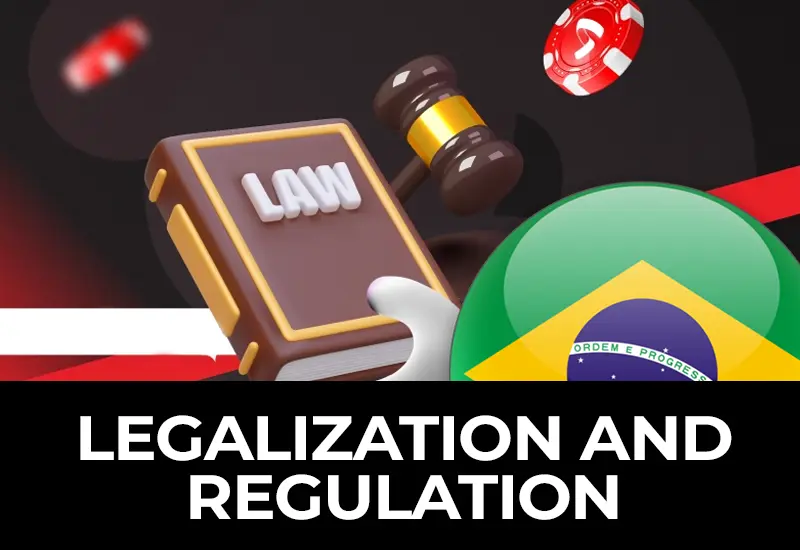Brazil’s gambling laws are evolving, reflecting the challenges and opportunities the industry presents. Despite the current restrictions on land-based casinos, online casinos such as BC Game are gaining popularity, offering Brazilians access to various gaming options. This article explores the dynamic landscape of legalization and regulation of casinos in Brazil and the potential future of online casinos.

Historical Background of Gambling Laws in Brazil
Gambling has a long history in Brazil, with roots dating back to the 1940s when the government implemented a ban on most forms of gambling. Despite these regulations, certain activities like horse racing and lotteries remained legal. This historical context sets the stage for understanding the current legal environment and the ongoing discussions about gambling regulation.
Key Historical Milestones in Brazilian Gambling Laws
- 1940s Ban: The comprehensive ban on most forms of gambling was implemented, reflecting a conservative approach to public morality and social welfare.
- Legal Exceptions: Despite the ban, horse racing and lotteries remained legal, and recognized as controlled forms of gambling with cultural and economic significance.
- Ongoing Debates: Over the decades, various proposals have been proposed to legalize and regulate gambling, driven by the potential economic benefits and changing public attitudes.
- Legislative Proposals: Recent efforts, such as the Brazilian Gambling Act, aim to create a regulated framework for land-based and online gambling, addressing modern challenges and opportunities.

The Growing Popularity of Online Gambling
The internet’s rise has revolutionized Brazil’s gambling industry in recent years. Although online gambling operates in a legal grey area, it has become increasingly popular. Brazilians can access many online casinos, sports betting platforms, and poker sites, many of which are based offshore. These platforms, like BC Game, often offer Portuguese services and accept Brazilian Real, making them accessible and appealing to local players.
Potential Economic Benefits of Legalizing Gambling
Legalizing and regulating gambling in Brazil could unlock significant economic benefits. A regulated gambling industry could create jobs, attract foreign investment, and generate substantial tax revenue. This revenue could be used to fund important public services, such as healthcare and education, benefiting the broader community.
The tourism industry could also see a boost, as international tourists might be attracted to Brazil’s vibrant culture and new gambling opportunities. By creating a safe and regulated environment for gambling, Brazil could become a leading destination for both domestic and international gamblers.
Legislative Efforts and Regulatory Proposals
Several legislative proposals have aimed at regulating and legalizing gambling in Brazil. These efforts are driven by the potential economic benefits and the desire to create a safe and transparent gambling environment. The Brazilian Gambling Act is one such proposal, seeking to establish a regulated framework for land-based and online gambling. The act includes provisions for licensing, taxation, and measures to protect against gambling addiction and fraud.
Creating a Safe and Responsible Gambling Environment
A regulated gambling industry must prioritize responsible gambling and provide support for those affected by addiction. Educational campaigns, self-exclusion programs, and access to counseling and support services are crucial components of a responsible gambling framework. By addressing these social concerns, Brazil can create a safer and more sustainable gambling environment.
The Future of Online Casinos in Brazil
The future of online casinos in Brazil looks promising. The growing popularity of online gambling, combined with ongoing legislative efforts, suggests that a regulated framework may soon be established. It would provide greater protection for consumers and generate substantial economic benefits.
If Brazil can successfully regulate online gambling, it could serve as a model for other countries and solidify its position as a leading destination for online gaming. The experience of other countries successfully regulating online gambling offers valuable insights and models that Brazil can adapt to its unique context.
Conclusion
The gambling landscape in Brazil is dynamic and evolving. While land-based casinos remain restricted, the rise of online gambling presents new opportunities and challenges. Legislative efforts to regulate and legalize gambling are ongoing, with the potential to unlock significant economic benefits and provide greater protection for consumers.
Frequently Asked Questions (FAQs)
Is online gambling legal in Brazil?
Online gambling operates in a legal grey area. There are no specific laws prohibiting it, allowing Brazilians to access offshore online casinos.
Can Brazilians gamble at offshore online casinos?
Yes, Brazilians can gamble at offshore online casinos that offer services in Portuguese and accept the Brazilian Real.
What are the benefits of legalizing online gambling in Brazil?
Legalizing online gambling could create jobs, increase tax revenue, and attract foreign investment.
What legislative efforts are being made to regulate gambling in Brazil?
Several proposals, including the Brazilian Gambling Act, aim to create a regulated framework for both land-based and online gambling.
How can Brazil ensure responsible gambling?
Implementing educational campaigns, self-exclusion programs, and access to support services can promote responsible gambling.













